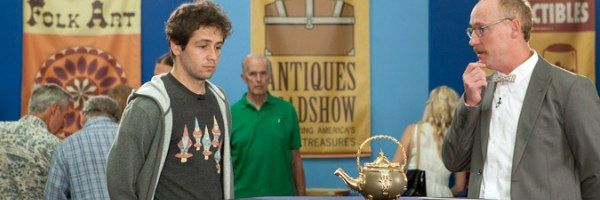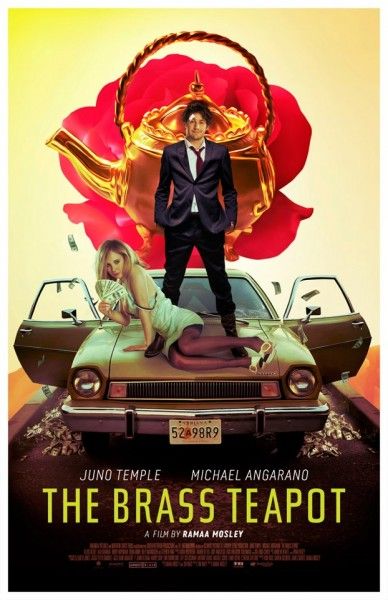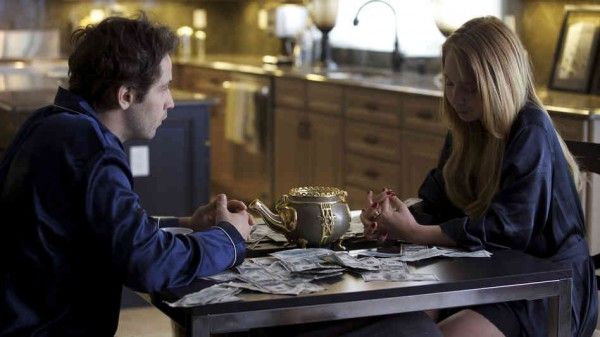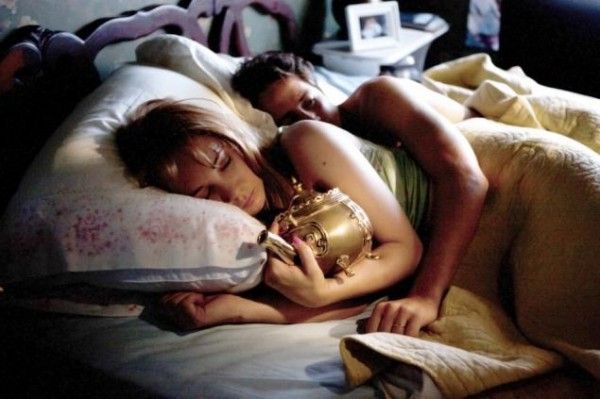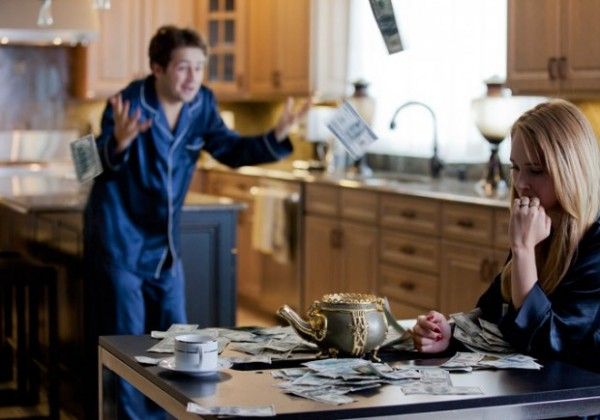In The Brass Teapot, John (Michael Angarano) and Alice (Juno Temple) are a small town couple in their ‘20s, who are very much in love, but also very broke. Struggling to make ends meet while their friends enjoy the good life, a mysterious brass teapot in a roadside antique shop is seemingly the answer to all of their problems, when it starts spitting money out of its spout. But, as its demands for appeasement become darker and darker, its existence is a reminder that you should always be careful what you wish for.
At the film’s press day, actor Michael Angarano spoke to Collider for this exclusive interview about why this odd little film appealed to him, keeping the relationship very real amidst this fantastical story, how they got to play around a bit with the script, and how much he enjoyed shooting the emotionally abusive moments. He also talked about what attracted him to the remake of the 1986 film Heat (that starred Burt Reynolds and Peter MacNicol), about a recovering gambling addict who finds work providing protection to his friends, which he’ll be starring in with Jason Statham. Check out what he had to say after the jump.
Collider: What was it about this odd little film that appealed to you?
MICHAEL ANGARANO: It is very odd. It’s weird. If we didn’t get the lightness, as well as the darkness of it, it wouldn’t be as fun. It reminded me of The Witches of Eastwick or Death Becomes Her, or something like that, but it also reminded me of Blue Valentine and Scenes from a Marriage. The first 20 pages of the script was a pretty honest portrayal of a modern couple, and then this fantastical brass teapot comes into play and that’s where the story goes. I love it because it turns into a dark fairy tale. But, I always thought that, if that couple element didn’t work and you didn’t believe them as a married couple, then the whole movie would not be worth watching. Even though it’s The Brass Teapot, you have to care more about the couple.
Even though there is that fantastical element, the relationship is just so real.
ANGARANO: It has to be, though. It really wouldn’t work, if you didn’t believe it as a movie that could have just been about a relationship. That’s a movie out there, somewhere. Those two characters, in the financial world, trying to make some fucking headway, is a movie in and of itself. So, the fact that it turns into this is fun and different. That’s what I first thought, when I read it. It’s really dark, but it’s light and it’s funny and it’s pretty real. They are pretty real elements in it, other than the brass teapot spitting money out of its spout.
Was this one of those scripts where you felt like you had to talk to the director before agreeing to do it?
ANGARANO: Yeah, because it could have been a really different movie. It’s movies like this that make you realize, “Wow, this is why movies still get made. This is why I haven’t given up and done paintings or made reality shows.” This is a story that only a children’s book or a comic book or a movie can tell. This is a movie, and it’s also a movie that could be interpreted completely differently by different personalities. Honestly, and this is a huge compliment, I looked at Ramaa Mosley more as a big kid than as a director because she was so excitable and so fascinated by this brass teapot. She went and wrote a comic book beforehand, and she created this whole mythology about it. She created a whole weird reality about it. There were times I was like, “You know this is actually just a movie, right?” She got so involved with it and so incredibly childlike about it, in a really fun way, and I saw that in her. I knew Juno [Temple] was attached to it, and I thought that combination was really spot-on. Juno, as an actress, is one of the more imaginative actresses that we have right now. She’s a character actress and has this huge range of emotion, but also a wisdom about her and an energy. It was a risk because tonally, if you don’t get it, you’ll be out in weird, deep waters. But, to go there with them seemed like the right fit. That’s who I wanted to go there with.
Once you signed on to do this, was there any input you gave about the character? Did the script change much, at all, or was it pretty much what you first read?
ANGARANO: The movie itself is pretty dead-on with the script. It’s pretty accurate to what was scripted, but we did so many different thing. We must have filmed three other movies in there because we played around a lot, and that was Ramaa’s style of directing. She let us go, take after take after take. She would move the cameraman and make us do it all in the same take. It was like organized chaos. We filmed the script pretty accurately, I would say, but I always thought that there were moments where you could go darker or you could go really funny, and she would always have her very solid vision. The one argument we got into was over a t-shirt. I was like, “It should be bloody. I just got into a fight, so it should be bloody.” And she was like, “No, there’s no blood in this movie.” And I was like, “But, you just understand that I was in a shoot-out. It should be bloody.” And she was like, “But, I don’t want that.” But, that’s hardly a creative argument. Her vision of it was to make a completely widely acceptable and accessible movie.
This movie gets a big physically and emotionally abusive. Was one of those more difficult than the other for you?
ANGARANO: I was looking forward to the emotional abuse. That’s where, to me, I thought the movie actually took a really raw turn. That’s actually the most though-provoking. Somebody said to me, “If you could actually turn to the person you love and say everything that you think and tell them all the lies that you’ve said, imagine what would come out. I don’t know if you would be together, after that.” That, in and of itself, is worth the whole while, even if that’s what you get out of the whole thing.
You’ve just signed on for the Heat remake. What attracted you to that project?
ANGARANO: The moment that you start to read a script, you’re watching the movie in your mind, and that’s the one moment that you have. Then, you go off to make the movie and you become so lost in it. With everything, it’s just a matter of finding whether I can bring anything new and different. I never really want to repeat myself, obviously, but even if I do, it’s because it is a choice. I would like to think there is a reason and a choice behind everything. I want to play different characters, as much as possible. I find that to be the most interesting. To be unrecognizable in movies is the biggest compliment that anybody can give you.
Is there a certain level of intimidation to team up with Jason Statham?
ANGARANO: Yeah, but I don’t have to fight him in the movie. He’s a very jovial man. I met him and he’s extremely nice, almost intimidatingly so. He was like, “Hi, Michael, nice to meet you!,” and I was like, “All right. Cool. Nice to meet you, too.” He’s really nice.
The Brass Teapot opens in theaters on April 5th.

